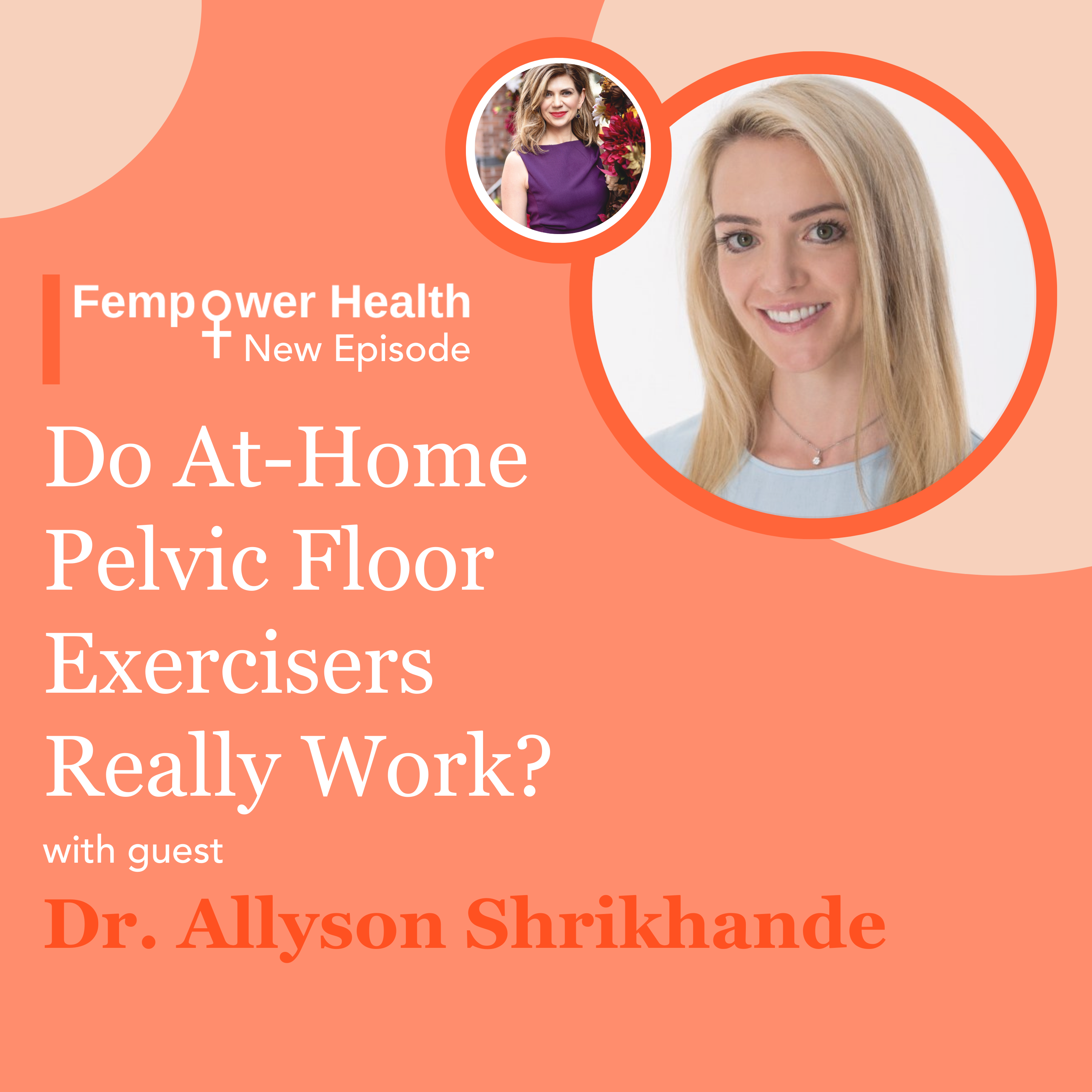LISTEN AGAIN: Do At-Home Pelvic Floor Exercisers Really Work?
The pelvic floor plays an important role supporting the bowel and bladder (as well as the uterus and vagina in females). Hormone changes due to pregnancy and peri/menopause and other factors can impact their function. Several at-home devices are now on the market to support the pelvic floor, but do they help you? And if so, which is right for you? Enter Dr. Allyson Shrikhande.
Dr. Allyson Shrikhande, a board certified Physical Medicine and Rehabilitation specialist, is the Chief Medical Officer of Pelvic Rehabilitation Medicine. She is also the Chair of the Medical Education Committee for the International Pelvic Pain Society. A leading expert on pelvic health and a respected researcher, author and lecturer, Dr. Shrikhande is a recognized authority on male and female pelvic pain diagnosis and treatment.
We discuss the following:
- Do electronic pelvic floor devices work?
- What are the limitations of at-home pelvic floor devices?
- How to afford these devices
- How to know if your device is helping or hurting
- How Pelvic Rehabilitation Center is trying to increase access to care
- What does FDA approval for classified medical devices mean?
We cover the following pelvic floor-related devices, tools, and exercises.
- Elvie
- Perifit
- K-fit
- Flyte
- Innovo
- Elitone
- Thigh master-like devices
- Jade eggs
- Kegel weights
- Exercises like yoga, pilates, hypopressives
“Listen to your body. If your symptoms are getting better, you are on the right path. Before using these devices, get an evaluation, if you can, by a pelvic floor specialist.” – Dr. Allyson Shrikhande
Follow Pelvic Rehabilitation on Facebook, Instagram and Twitter
Resources:
- Dustienne Miller Yoga
- Adriene’s Yoga
- Pelvic Floor Podcast Playlist
- Pelvic Floor Resources
- Yoga for Incontinence
- Yoga for Postpartum
If you liked this episode and you’re feeling generous, don’t forget to leave a review on iTunes or Spotify!
And be sure to:
- Follow Fempower Health on Instagram for updates and tips.
- Tell 2-3 of your friends about this episode!
**The information shared by Fempower Health is not medical advice but for information purposes to enable you to have more effective conversations with your doctor. Always talk to your doctor before making health-related decisions. Additionally, the views expressed by the Fempower Health podcast guests are their own and their appearance on the program does not imply an endorsement of them or any entity they represent.**
**Contains affiliate links and I will be compensated if you make a purchase after clicking on my links**
Dr. Shrikhande, a board certified Physical Medicine and Rehabilitation specialist, is the Chief Medical Officer of Pelvic Rehabilitation Medicine. She is also the Chair of the Medical Education Committee for the International Pelvic Pain Society. Dr. Shrikhande is passionate about this cause and dedicated to helping men and women with pelvic pain who often suffer without anyone willing to listen, understand or find the cause of their pain. That’s why she has traveled the world to work with expert gynecologists, urologists, physiatrists and interventional pain physicians. With an extensive background in mainstream clinical medicine, she also makes use of many alternatives, holistic and homeopathic approaches. She has published peer-reviewed articles on the treatment of muscle pain in academic journals and works closely with renowned pelvic pain gynecologists and urologists. Taking a team approach, she works with specialists in pelvic floor physical therapy, kinetics and movement, as well as acupuncturists, nutritionists, cognitive behavioral therapists and functional medicine physicians. Dr. Allyson Shrikhande currently teaches fall and spring remote courses at the Herman & Wallace Pelvic Rehabilitation Institute.



































